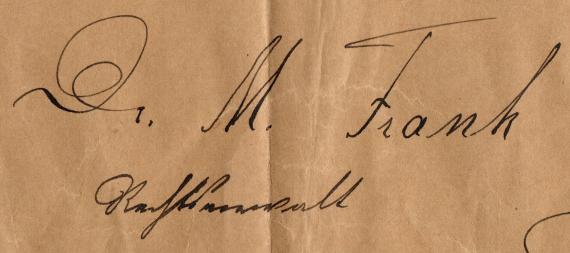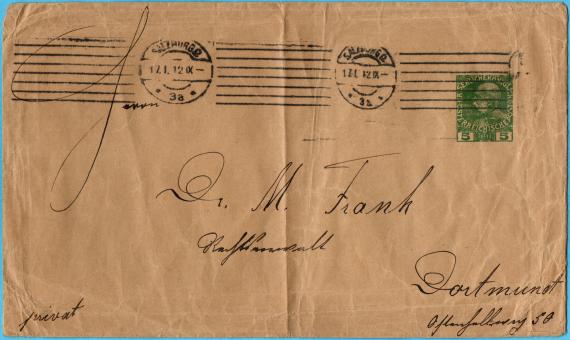Ostenhellweg 50
Rheinland-Westfalen
44135 Dortmund
Germany
The Dortmund address book from 1912 contains the following entry: Frank I Max, lawyer, apartment: Göbenstr. 24, office: Ostenhellweg 50, F. 3231. - Dr. Max Frank was born in Hameln on 14 November 1870. He came from a middle-class Jewish family. His father was a grain merchant and banker. After leaving school, Max Frank studied law. He was admitted to the bar in August 1898. At the turn of the century, Max Frank moved to Dortmund and practiced as a lawyer there. The first law offices are documented in 1901 at Kaiserstra e 26. On May 28, 1901, he married Margarete Elias. The couple had a son - Heinrich, born on May 11, 1903. From 1906, Max Frank ran the law firm together with his brother-in-law, the lawyer Dr. Otto Elias. From 1921 to 1933, the law firm was located at Hansastra<e 50. Max Frank was a Social Democrat and even represented the SPD in the Reichstag from March 7 to April 9, 1921. Even in the pre-war period, Max Frank was one of the busiest criminal defense lawyers in the Ruhr region. In the run-up to the boycott of Jews on April 1, 1933, Max Frank was taken into so-called "protective custody" on March 28. He was not released until April 2, 1933, when he was arrested again for one day on April 13, 1933. On the same day, his brother-in-law, Dr. Otto Elias, took his own life. Max Frank himself suffered severe abuse in prison, which led him to the brink of a mental breakdown. His wife Margarete suffered a nervous breakdown as a result of the persecution and had to be admitted to a mental hospital. All this, including the law on admission to the bar of April 7, 1933, which was intended to revoke the admission of Jewish lawyers, prompted Max Frank to leave Dortmund. In May 1933, Max Frank decided to commit suicide in Berlin. Today, a stumbling block in front of Hansastra e 50 in Dortmund commemorates Max Frank s fate


Add new comment